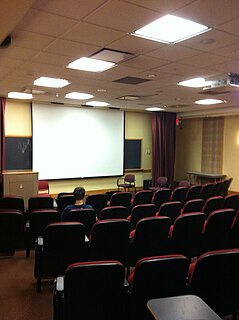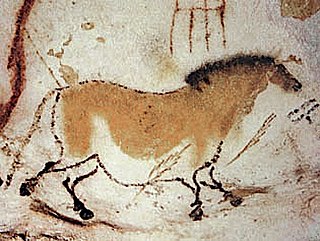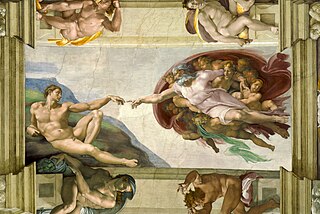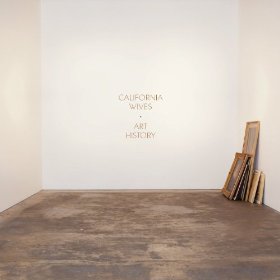Non-fiction or nonfiction is content whose creator, in good faith, assumes responsibility for the truth or accuracy of the events, people, or information presented. In contrast, a story whose creator explicitly leaves open if and how the work refers to reality is usually classified as fiction. Nonfiction, which may be presented either objectively or subjectively, is traditionally one of the two main divisions of narratives, the other traditional division being fiction, which contrasts with nonfiction by dealing in information, events, and characters expected to be partly or largely imaginary.

A propaganda film is a film that involves some form of propaganda. Propaganda films may be packaged in numerous ways, but are most often documentary-style productions or fictional screenplays, that are produced to convince the viewer of a specific political point or influence the opinions or behavior of the viewer, often by providing subjective content that may be deliberately misleading.

The Courtauld Institute of Art, commonly referred to as The Courtauld, is a self-governing college of the University of London specialising in the study of the history of art and conservation. It is among the most prestigious institutions in the world for these disciplines and is widely known for the disproportionate number of directors of major museums drawn from its small body of alumni.

Savannah College of Art and Design (SCAD) is a private, nonprofit, accredited university with locations in Savannah, Georgia; Atlanta, Georgia; Hong Kong; and Lacoste, France.
A Master of Fine Arts is a creative degree in fine arts, including visual arts, creative writing, graphic design, photography, filmmaking, dance, theatre, other performing arts and in some cases, theatre management or arts administration. It is a graduate degree that typically requires two to three years of postgraduate study after a bachelor's degree, though the term of study varies by country or university. The MFA is a terminal degree. Coursework is primarily of an applied or performing nature with the program often culminating in a major work or performance. The first university to admit a student to the degree of Master of Fine Arts was the University of Iowa in 1940.

Film studies is an academic discipline that deals with various theoretical, historical, and critical approaches to films. It is sometimes subsumed within media studies and is often compared to television studies. Film studies is less concerned with advancing proficiency in film production than it is with exploring the narrative, artistic, cultural, economic, and political implications of the cinema. In searching for these social-ideological values, film studies takes a series of critical approaches for the analysis of production, theoretical framework, context, and creation. In this sense the film studies discipline exists as one in which the teacher does not always assume the primary educator role; the featured film itself serves that function. Also, in studying film, possible careers include critic or production. Film theory often includes the study of conflicts between the aesthetics of visual Hollywood and the textual analysis of screenplay. Overall the study of film continues to grow, as does the industry on which it focuses. Academic journals publishing film studies work include Sight & Sound, Film International, CineAction, Screen, Cinema Journal, Film Quarterly and Journal of Film and Video.
A journal, from the Old French "journal", can refer to several things. In its original meaning, it refers to a daily record of activities, but the term has evolved to mean any record of activities, regardless of time elapsed between entries, such as a
Squirtgun is an American punk rock band from Lafayette, Indiana formed by record producer Mass Giorgini in 1993.
Dreaming is the process of experiencing a dream during sleep.
Film criticism is the analysis and evaluation of films and the film medium. The concept is often used interchangeably with that of film reviews. A film review implies a recommendation aimed at consumers, however not all film criticism takes the form of reviews.
The College Art Association of America, also known as the CAA, is the principal organization in the United States for professionals in the visual arts, from students to art historians to emeritus faculty. Founded in 1911, it "promotes these arts and their understanding through advocacy, intellectual engagement, and a commitment to the diversity of practices and practitioners." CAA currently has individual members across the United States and internationally; and institutional members, such as libraries, academic departments, and museums located in the United States. The organization's programs, standards and guidelines, advocacy, intellectual engagement, and commitment to the diversity of practices and practitioners, align with its broad and diverse membership.

McFarland & Company, Inc. is an independent book publisher based in Jefferson, North Carolina that specializes in academic and reference works, as well as general interest adult nonfiction. Its president and editor-in-chief is Robert Franklin, who founded the company in 1979. McFarland employs a staff of about 50, and as of 2017 has published approximately 5,100 titles. For much of its history, McFarland has focused on small print runs of about 600 copies per book.
Arts criticism is the process of describing, analyzing, interpreting, and judging works of art. It is distinct from art criticism due to its broader remit. The disciplines of arts criticism can be defined by the object being considered rather than the methodology : buildings, paintings, performances, music, visual media, or literary texts.
Amsterdam University Press (AUP) is a university press that was founded in 1992 by the University of Amsterdam in the Netherlands. It is based on the Anglo-Saxon university press model and operates on a not-for-profit basis. AUP publishes scholarly and trade titles in both Dutch and English, predominantly in the humanities and social sciences and has a publishing list of over 1400 titles. It also publishes multiple scholarly journals according to the open access publishing model. From 2000 until 2013, the AUP published the journal Academische Boekengids with book reviews written by editors from multiple Dutch universities.
American art may refer to:
Trauma most often refers to:

Yerevan State Institute of Theatre and Cinematography (YSITC),, is a state university and higher education institution based in Yerevan, the capital of Armenia.








